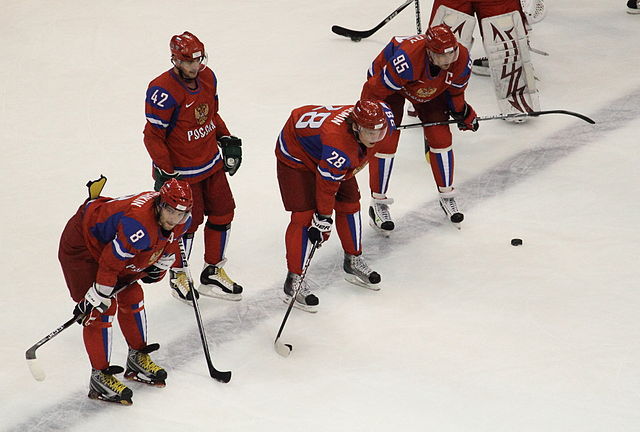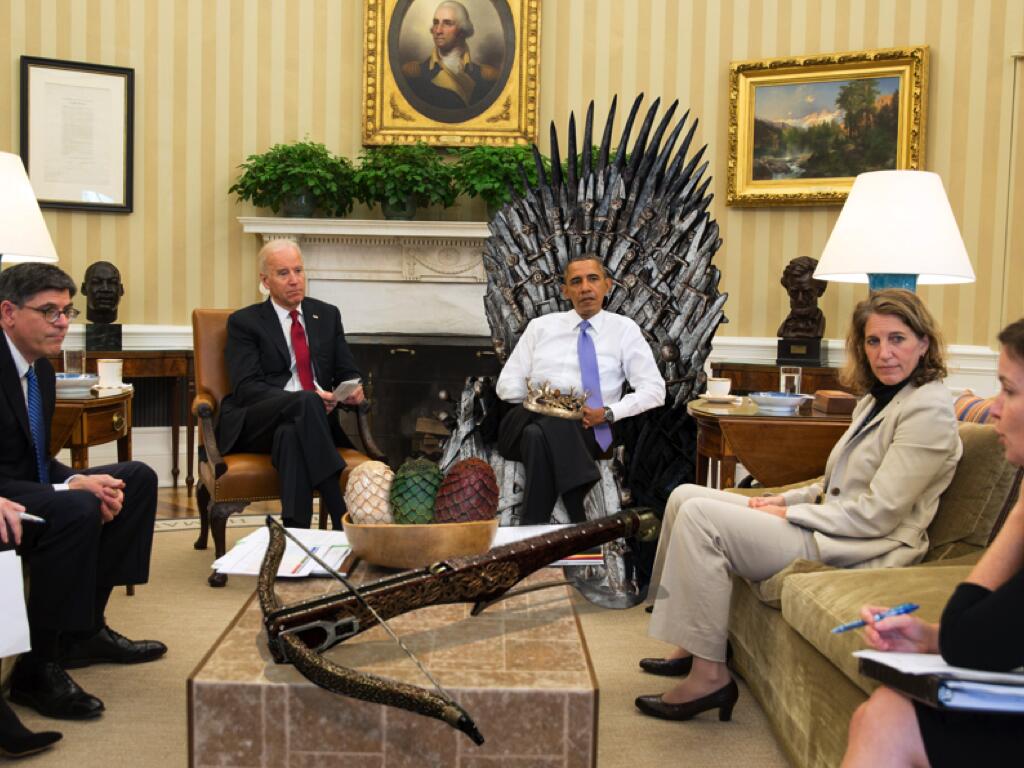In the wake of Russia’s invasion of Ukraine, former NHL goaltender Dominik Hasek called the NHL to “immediately suspend contracts for all Russian players” in a Twitter thread. He wrote, “Every athlete represents not only himself and his club, but also his country and its values and actions. That is a fact. If the NHL does not do so, it has indirect co-responsibility for the dead in Ukraine.”
While radical, Hasek’s call to action comes at a time in which everything Russian, from cats to vodka, is either being boycotted or outright banned. The NHL, a league with three times as many Russian-born players as the NFL, MLB, and the NBA combined, is the most recent facet of Russian-influenced North American popular culture to come under scrutiny.
Historically, sports have been able to act as a potent mechanism for nationalistic propaganda, proving a country’s dominance on the international stage. Hockey, in particular, was an integral facet of the ideological battle between the United States and the Soviet Union. Soviet hockey reflected the characteristics the USSR wanted to project: methodical, infallible and dominant. Since the fall of the Soviet Union, Russian hockey’s superiority has declined as Russian players can now move to North America to play for the NHL.
Now, the status of those North American-based Russian hockey players is being questioned as Western countries crackdown on Russian influence abroad. Across sports, Russian national teams are already being banned from international play. Leagues employing dozens of Russian players, such as FIFA, the UEFA Champions League, and the International Ice Hockey Federation, have ruled teams representing the Russian Federation ineligible to compete but have continued to allow individual Russian players to participate in competitions. Taking a harsher approach, the International Olympic Committee and its equivalents have universally disqualified Russian and Belarusian-born players from competing.
The NHL has not only kept all of its Russian players under contract but expressed sympathy for the “extremely difficult position” Russian players are faced with in its statement condemning the Russian invasion of Ukraine. Increased censorship in Russia has made speaking out against the war a risky endeavor. Still, fans and sports media in North America expect the same level of openly critical statements they are seeing from Western celebrities. When asked to comment on the war in Ukraine, the measured responses from Russian hockey players end up sounding inauthentic and overly passive to a Western audience, leading to severe backlash from both fans and North American mainstream media.
An interview given by Washington Capitals forward Alexander Ovechkin — arguably the most famous Russian hockey player of all time — generated controversy as he failed to explicitly condemn Russia’s actions in Ukraine. Following the interview, Ovechkin lost his long-time sponsorship with CCM, had ads pulled, and continually faces boos in opposing teams’ arenas.
Ovechkin’s conspicuously neutral statement will not come as a surprise to his fellow countrymen put in the same position. When New York Rangers player Artemiy Panarin posted on social media about his support for Russian opposition leader Alexei Navalny back in 2021, Russian players were reminded of the consequences of opposing Putin. Panarin was swiftly accused of domestic abuse by the coach of one of his former Rusian teams — though his former teammates report no recollection of the event — and forced into taking a leave of absence. Putin’s grip has only grown tighter since the invasion, as new censorship laws leave the definition of criticism loose and the repercussions severe.
In the aftermath of Ovechkin’s contentious aftermath, many pointed out the hockey star’s repetition of the phrase “I’m Russian” and that his family is currently living in Russia. To some American fans, this read as blatant support of the Russian government. To those familiar with Putin’s tactics, it was an explanation. Any word against the war could put Ovechkin or his family in danger, a risk heightened by his high-profile status in Russia. Even simply changing a profile picture was counseled against by Ovechkin’s advisors for fear of being read as a statement against Putin.
If an established star like Ovechkin faces this much fallout from both Russian and North American media, then what repercussions will Russia’s actions have on the next generation of Russian hockey players? Their futures will be determined by the next steps of North American hockey organizations.
Rumors have been floated that the Canadian Hockey League, an umbrella organization that encompasses the three major junior hockey leagues in Canada, plans to make Russian and Belarusian players ineligible in the upcoming import draft. The International Ice Hockey Federation has already moved to ban Russia and Belarus from participating in future world juniors tournaments. Whether or not the NHL will allow Russian and Belarusian players to be drafted in the upcoming entry draft is still up in the air.
These actions attempt to send a firm message to Russia — but isn’t this what Russia has wanted all along?
Before the invasion of Ukraine, the conversation surrounding Russian hockey centered on one name: Matvei Michkov. Michkov is one of the top-rated prospects coming into the 2023 NHL Entry Draft and is currently playing with the St. Petersburg team. His talent is unmissable, but a particularly lengthy contract signed with Russia’s Kontinental Hockey League (KHL) in 2021 made the 17-year old’s status as a future American player questionable.
North American hockey media interpreted Michkov’s contract to be part of the KHL’s effort to retain its young stars, following years of being treated as a development league for the NHL. Signing young players to lengthy contracts to play for KHL teams and calls for age-based restrictions on Russian players moving to the NHL are some of the tactics the KHL has tried to use to maintain control over its young talent. Allegations of legal and physical threats have also been leveled against various KHL teams and their representatives, meaning these players may be intimidated into staying if the league decides to ramp up its efforts to keep its players in Russia.
As Russia takes steps to cultivate young Russian hockey players and block their entrance into North America, we could see a return to the use of Russian hockey — which has long since ceased to be the center stage of hockey excellence — as cultural warfare. Many of these young prospects may be swayed by the current state of forced isolationism in Russia to sign long-term deals with KHL teams. It seems unlikely that these players will be able to play in North America in the near future due to the political, economic, and cultural sanctions set on Russia and the worsening relationship between the NHL and the KHL. Moreover, given the bans, some of them may be unable to continue playing hockey without the opportunities provided in North America.
Not only will the restrictions on play in North America affect the careers of young Russian hockey players, but it displays a level of apathy towards the conditions of everyday civilians in contemporary Russia. Neither the economic nor the political situation look particularly promising for Russia’s youth. Hockey could allow these teenagers to leave a country embroiled in a war where its civilians are being jailed for protesting.
Tense relations between the KHL and the NHL have historically forced Russian players — players with undeniable impact on the nature of the sport itself like Alexander Mogilny, Sergei Fedorov, and, most recently, Evgeni Malkin in 2006 — to defect from their home countries in search of a better future in North America. If the NHL decides to restrict Russian hockey players from playing here, defection will no longer be an option.
The exclusion of Russian prospects based on the actions of an illegitimately elected despot is not only unfair to the sport, its players and its fans but also detrimental to the very moral goal it pretends to achieve. Hockey owes nothing to Russia, but it owes everything to its Russian players. The last thing the NHL should do right now is abandon them.







